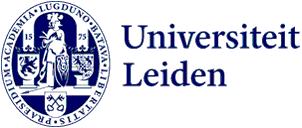Lived Experience of VR simulation at the LUMC
Simulation training has emerged as a cornerstone of medical education providing an immersive and experiential learning environment for learning healthcare professionals. In recent years, virtual reality has introduced a groundbreaking paradigm to simulation-based training, uncovering many benefits for both educational developers, teachers and learners. By enabling high-fidelity practice in situational awareness, decision-making, and multitiered response systems.
Evaluate the lived experience of simulation with VR
LUMC is developing a VR-training program, and looking for anthropologists to evaluate the lived experience of simulation with VR. It wants to evaluate the training using qualitative and quantitative outcome measures on several levels. Research questions might be:
How do trainees feel in VR?
Do trainees believe training in VR to change their point of view and habits?
Description of the Practical Problem and Assignment
The practical problem addressed in this assignment is the need for evaluation of VR training. The specific task for the student involves conducting a qualitative analysis based on personal observations and collecting and analyzing qualitative data.
Requested Professional Product (next to master thesis)
Presentation, Intervention
Requirements for the Student
- Profound knowledge/interest in simulation based learning, VR
- Good social and communication skills
- Flexible attitude
- Academic working and thinking level
- Knowledge of Atlas.Ti is a plus
- Dutch or English speaking
What You Will Learn in This Internship
- Working in the dynamic world of healthcare research
- Working with Atlas.Ti: a program for qualitative analysis
- Working with Castor: a program for data collection in scientific research
- Organization and planning: independence in scientific research
- Working with SPSS: a program for quantitative analyses
Contact person at the LUMC
For an introductory conversation, the student can contact Krista Hoek at k.b.hoek@lumc.nl.
